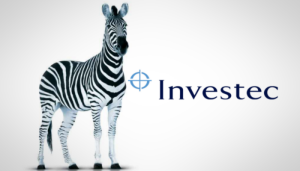ADVERTISEMENT
The relationship between wealth and skills is complex and multifaceted, reflecting in many areas of life, from personal development to professional success. Wealth, often associated exclusively with material goods, goes beyond the financial aspect, encompassing prosperity in several dimensions.
ADVERTISEMENT
1. Skills as the foundation of wealth:
Skills, whether technical, emotional or social, serve as the foundation for building wealth. Solid skills can enhance professional performance, opening doors to opportunities and financial growth. The ability to learn, adapt and innovate is essential to thrive in dynamic environments.
2. Education as an enrichment tool:
Investing in education is a sure path to skills development. Acquisition of formal or informal knowledge broadens skills, allowing a deeper understanding of markets, opportunities and trends, contributing to the construction of long-term wealth.
ADVERTISEMENT
3. Entrepreneurship and entrepreneurial skills:
In the business world, entrepreneurial skills are crucial. Identifying opportunities, making strategic decisions and effectively leading teams are skills that can transform an innovative idea into a thriving enterprise, generating wealth for entrepreneurs and communities.
4. Social skills in the professional environment:
The role of social skills in the construction of wealth stands out as a differential of great relevance. Communication skills involve not only the effective transmission of ideas, but also the ability to understand diverse perspectives, facilitating negotiations and promoting more effective collaboration. In the business context, teamwork is essential, as the synergy of individual skills often results in more innovative and efficient solutions. In addition, effective networking plays a crucial role in expanding opportunities, allowing access to valuable information and creating solid professional ties. These competencies not only open doors to new possibilities, but are also key to consolidating lasting strategic partnerships. By investing in the enhancement of these soft skills, individuals and companies not only strengthen their foundations for professional success, but also contribute to a broader network of positive interactions, generating benefits both at the personal and business levels.
5. Wealth as a reflection of financial skills:
Financial management plays a crucial role in the quest for sustainable wealth. Budgeting efficiently not only allows you to control spending, but also opens up space for strategic allocation of resources. Investing wisely, in turn, transcends the mere multiplication of assets; it involves deep understanding of markets, identifying opportunities, and building diversified portfolios that withstand economic fluctuations. In addition, sound financial decision-making goes beyond the monetary aspect, incorporating a long-term vision that considers capital preservation, risk mitigation, and consistent growth. In summary, the ability to manage finances comprehensively is an indispensable foundation for accumulating wealth over time, providing stability and a solid foundation for meeting economic challenges and exploring new opportunities.
6. Personal development as a path to wealth:
Personal development, fundamental to building a rich and satisfying life in all its dimensions, depends intrinsically on solid personal skills. Emotional intelligence, by enabling the understanding and management of emotions, promotes healthier and more resilient interpersonal relationships. Resilience, in turn, emerges as a crucial foundation to overcome challenges and adversities, strengthening the capacity to adapt in the face of life’s vicissitudes. Self-knowledge, by providing a deep understanding of one’s abilities, limitations, and values, guides choices aligned with personal aspirations. These skills, interconnected, not only shape individual growth, but also enable individuals to face varied situations with maturity and emotional balance. Thus, by investing in the development of these personal skills, it is possible to build not only a life full of achievements, but also to cultivate the ability to face challenges in a positive way, contributing to a full existence in all spheres.
7. Social impact and humanitarian skills:
The evaluation of wealth is not restricted to the financial perspective, but is also measured by the positive social impact. Humanitarian competencies such as empathy, social responsibility and sustainability play a crucial role in promoting a more equitable and prosperous society. Empathy provides a deep understanding of the needs of others, while social responsibility drives actions aimed at the common good. Sustainability, in turn, goes beyond environmental preservation, encompassing the creation of lasting social and economic systems. By integrating these competencies with the pursuit of wealth, success is redefined as a combination of individual growth and positive contribution to communities and the environment, thereby establishing a more comprehensive and sustainable vision of prosperity.
8. Innovation as an engine of wealth:
Innovative skills drive progress and are key to creating new solutions. The ability to think creatively, solve complex problems and lead technological innovations are key factors in generating wealth in diverse industries.
9. The role of Continuing Education in sustaining wealth:
In conclusion, the alliance between wealth and skills highlights the importance of continuing education throughout life. Adaptability and the constant search for improvement are essential to meet the constantly evolving challenges. Thus, consolidating a powerful alliance between lasting wealth and constantly growing competencies.





